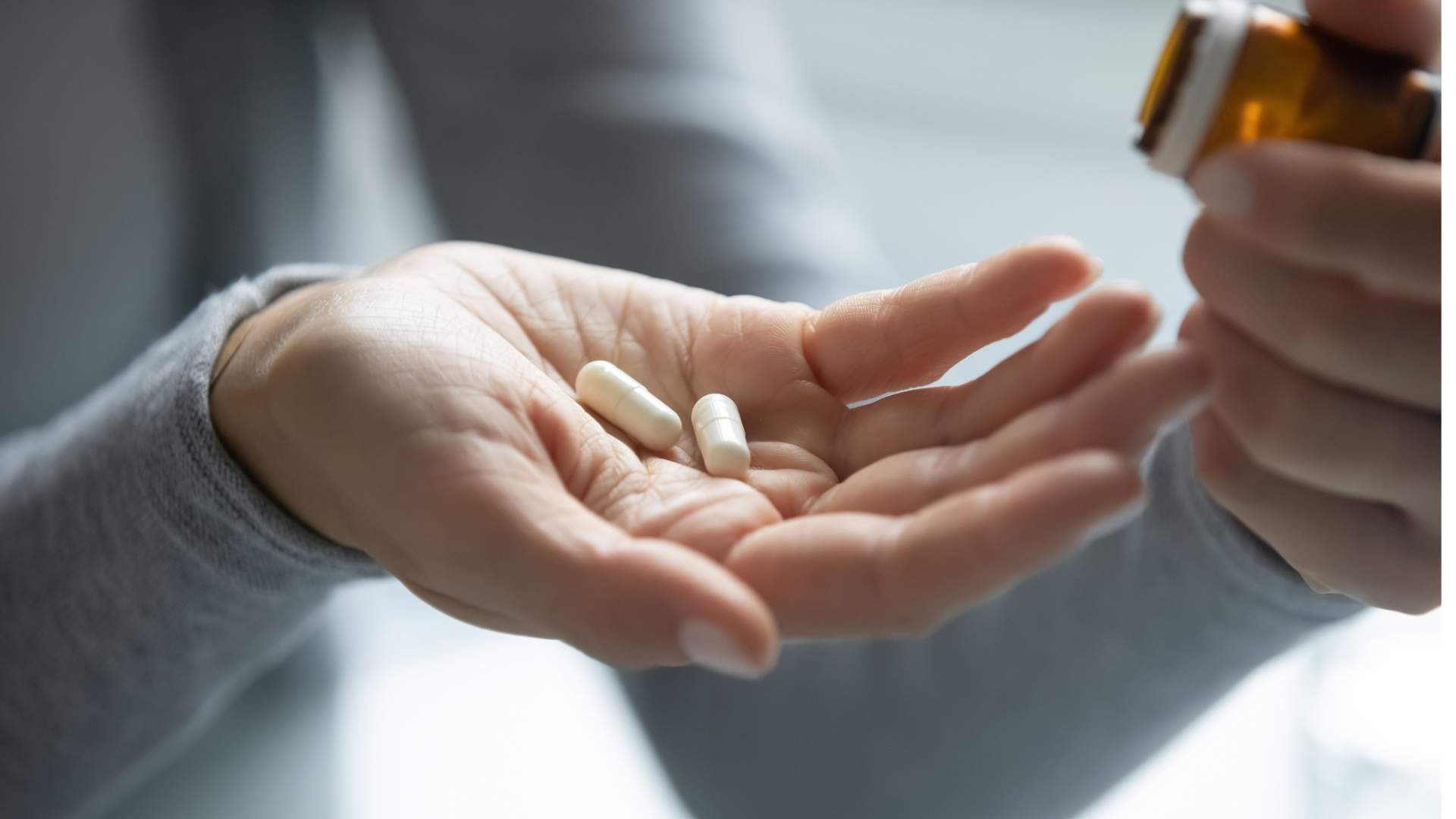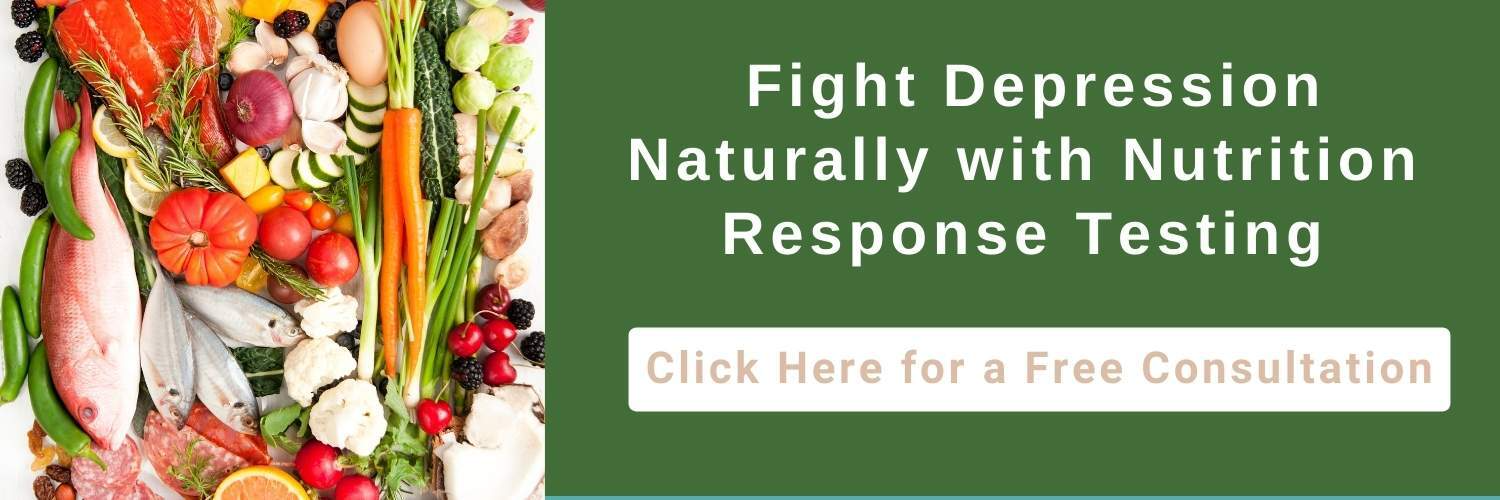Do Antidepressants Affect Hormones? A Close-Up Look at the Relationship Between Antidepressants and Hormone Imbalance
"The content below is not intended to be a substitute for professional medical advice, diagnosis, or treatment. Always seek the advice of your physician or other qualified health provider with any questions you may have regarding a medical condition."
You’re feeling off. Maybe you’ve already been diagnosed with a hormonal imbalance, or are questioning if that’s what’s making you feel so out of whack.
After spending some time behind the computer screen, you’re here, wondering, “Do antidepressants cause hormone imbalance?” Could the medicine you’re taking to help one issue be causing another?
We have the information you’re looking for to gain hope and perspective on your hormones and antidepressant use.
Keep reading for more information on:
- Antidepressants and hormone imbalance
- Which hormones are most commonly affected
- How you may be able to balance hormones and manage depression and anxiety naturally
Table of Contents
Can Antidepressants Cause Hormone Imbalance?
Yes, it is possible for your antidepressants to cause a hormone imbalance.
Selective serotonin reuptake inhibitors (SSRIs), serotonin and norepinephrine reuptake inhibitors (SNRIs), and tricyclic antidepressants (TCAs) all
increase the level of hormones in your body, specifically, serotonin.
Antidepressants and Hormone Imbalance: What Does the Research Say?
Research is mixed on whether antidepressants play a significant role in hormone imbalances, but some studies show they may have some effect:
- Although limited, some research suggests that antidepressants may also affect sex hormones. For example, women experiencing premenstrual dysphoric disorder (PPMD), may experience relief from symptoms while taking Prozac.
- Other studies have found that both men and women may experience decreased libido, not due to any decrease or increase in the hormones you generally think of as sex hormones, but because SSRIs can lower the levels of dopamine being produced — a hormone necessary to feel aroused and “in the mood.”
It’s important to note that antidepressants may play a role in hormone production and the following may even be the result of hormonal imbalance:
- Depression
- Anxiety, and
- Other mental illnesses
For this reason, it is vital to pinpoint the cause so you can get back to your best health — both physically and emotionally.
What Are the Signs That Antidepressants May Be Affecting Your Hormones?
We recommend talking with your physician to see if about hormone levels if you are taking antidepressants and notice any of the following symptoms:
- Unexplained or sudden weight gain or loss
- Muscle weakness
- Fatigue
- Joint pain or swelling
- Sensitivity to heat or cold
- Frequent urination
- Constipation
- Increased hunger or thirst
- Decreased sex drive
- Anxiety
- Depression
- Irritability
- Blurred vision
- Dry skin
- Thinning hair
- Puffy face
- Infertility
Not all cases may show that your antidepressants are causing a hormonal imbalance. In fact, many times, it’s the underlying issue — i.e.,
anxiety or depression — that is causing your hormonal imbalance.
5 Hormones That May Be Affected by Antidepressants
#1: Estrogen
Research shows a possible correlation between antidepressant use and estrogen levels.
The antidepressant Fluoxetine (FLX), also known as Prozac, is a commonly used SSRI that can interfere with estrogen signaling in the body. This signaling is vital for the development of women’s sex organs, as well as certain brain areas — resulting in affected receptor activity or a change in hormone levels.
Symptoms you may experience if you are dealing with decreased estrogen levels include:
- Decreased sex drive
- Painful intercourse
- Trouble sleeping
- Dry skin
- Breast tenderness
- Irritability
- Difficulty concentrating
- Vaginal dryness
- Lack of periods or irregular periods
- Weight gain
- Headaches before or during your period
- Fatigue
#2: Testosterone
Besides decreasing estrogen levels, SSRIs have been found to decrease testosterone levels.
The most common symptoms associated with low testosterone levels include:
- Lack of sex drive
- Reduced erectile function
- Loss of hair
- Loss of lean muscle mass
- Extreme fatigue
- Obesity
#3: Serotonin
SSRIs and SNRIs increase the levels of serotonin in your brain to help balance hormones and calm symptoms of anxiety and depression.
But as we all know, too much of a good thing can be a bad thing.
If your body produces too much serotonin, commonly referred to as serotonin syndrome, you may experience:
- Fever
- Hallucinations
- Confusion
- Restlessness
- Extreme agitation
- Increased heart rate
- Blood pressure fluctuations
- Nausea, vomiting, and diarrhea; or
- Seizures
#4: Prolactin
Using serotonin inhibitors may cause increased levels of prolactin — a hormone produced by your pituitary gland that’s responsible for:
- Lactation
- Breast development, and
- Other actions required for your body to maintain homeostasis
SSRI overactivity causes this increase in prolactin levels and can happen in both men and women.
Symptoms associated with too much prolactin being produced include:
- Infertility
- Breast milk leakage in people who aren't nursing
- Irregular or no periods (in women)
- Hirsutism
- Hot flashes
- Loss of interest in sex
- Painful or uncomfortable intercourse
#5: Thyroid
SSRIs have been shown to affect thyroid function by:
- Reducing the amount of T4 hormone levels in the body
- Affecting the signaling from your hypothalamus, limiting the production of hormones
One study even found that in some cases, short-term usage of SSRIs may be to blame for hypothyroidism.
How Is Hormone Imbalance Caused by Antidepressants Diagnosed?
Although there is no way to know for certain if your antidepressants are causing hormone imbalance, it is possible to detect imbalance in several ways, including:
- Conducting a urinalysis: Your physician will order a urinalysis, during which multiple samples of urine are collected for up to 24 hours.
- Collecting blood samples: Blood samples can be taken at your lab or in your home, and can be tested for dozens of hormones.
- Saliva testing: This test requires you to collect your saliva in tubes for several days, and is most commonly used to understand hormone levels in women approaching menopause.
How Can I Deal With Depression and Hormone Imbalance Naturally?
If you’re looking for a more natural approach to your health and wellbeing, it is important to understand that while it is possible to manage depression, anxiety, and hormone imbalance naturally, it may be necessary to do so under the supervision of a medical professional.
Are you struggling with depression or a hormonal imbalance? Dr. Sergi at
HealthierU specializes in creating a holistic plan to help your body heal naturally. Contact us today to learn more.
Dietary Changes
Simple changes in your diet can have an enormous impact on both your hormone levels and your mental health.
Did you know that eating large amounts of red meat or foods high in soy can increase your estrogen levels? Increased amounts of caffeine may increase the level of cortisol your body produces, resulting in a greater perceived level of stress.
Multiple
studies have also linked depression, anger, and loss of motivation to food allergies and sensitivities. When participants removed said foods from their diets, their symptoms lessened, and in some instances disappeared completely.
Nutritional Supplements
There are several vitamins and nutritional supplements available to help you overcome a hormonal imbalance, including:
- Ascorbic acid
- Vitamin D3
- Vitamin K2
- B Vitamins
- Magnesium
- Probiotics
- Omega-3 fatty acids
- And more
If you’re searching for a natural approach to overcoming anxiety or depression, consider adding the following supplements to your diet:
- Fish oil
- Vitamin D
- Methylfolate
- S-adenosylmethionine (SAMe)
- St John’s Wort
If you are dealing with mental illness, such as depression,
please consult a medical professional.
Commonly Asked Questions About Antidepressants and Hormonal Imbalance
What Should I Do If I Think My Hormones Are Out of Balance?
If you suspect you have a hormonal condition — such as thyroid disease, adrenal issues, PCOS, or low testosterone — your healthcare professional can provide specialized testing and treatment alongside your mental health provider.
What Is the Best Way To Manage Depression If Hormones Are Part Of The Problem?
While it depends on the individual, a combined approach generally works best and includes:
- Maintaining a healthy diet and lifestyle
- Addressing hormonal imbalances through medication, hormone therapy, or lifestyle
- Treating depression with therapy, supportive habits, and antidepressants if needed
Can Adjusting My Antidepressant Help Balance Hormones?
Possibly. Changing medications, decreasing the dose, or adding hormone therapy may help reduce side effects. Always consult your prescribing provider to discuss making changes.
Overcome Depression and Hormone Imbalance With Holistic Nutrition at HealthierU
Whether you’re searching for a way to balance your hormones or manage depression, Dr. Sergi at HealthierU can help and hope you need to get back to normal life.
Dr. Sergi can help pinpoint any imbalances in your body to help get to the root of the problem — whether it’s a hormone imbalance or depression — and create a plan to address any issues as naturally as possible.
Your individualized plan will help bring balance to your mind and hormones through:
- Lifestyle changes
- Nutritional suggestions
- The best supplements for your unique needs
Contact Dr. Sergi today to learn how we can help you determine the cause of your hormone imbalance.






